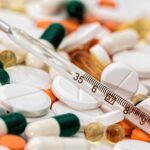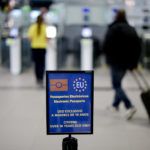My thoughts go first and foremost to the victims of Russia’s terrible aggression in Ukraine. The harrowing pictures of human suffering have touched us all. The European Union and our international partners have mobilised fully to support the people of Ukraine, to isolate Russia and to maximise the price that will be paid by Putin’s regime as they pursue their awful policies.
The economic effects of this war are now being felt across Europe. The economic effects are nothing like the human suffering of millions of ordinary Ukrainians at the moment. But we do need to acknowledge that there will be a cost to the euro area and this is part of the assessment that the Eurogroup heard today from the Commission and from the ECB. This crisis will have an impact on growth. It has affected our supply chains and it is pushing energy prices to levels that are challenging for households and businesses. But as high as the costs may get, I emphasise that the euro area came into this new test in good shape.
We came into the crisis with a strong economic recovery underway, underpinned by job gains, well-capitalized banks and an improving health situation. During the COVID-19 crisis, we saw the resilience of the euro area economy. The Eurogroup showed its determination, its unity of purpose in coordinating an effective policy response, which helped to achieve a robust recovery.
After today’s meeting, I am confident that our unity remains intact. That was the spirit in which we approached our discussion on the fiscal guidance for 2023. Its catalyst was the communication prepared by Commissioner Gentiloni outlining his views on budgetary policy for next year. This was an important step to allow member states to prepare their budgets based on a shared assessment.
We issued a statement a few moments ago. Given uncertainties and risks, we need to remain agile and flexible in our policy response. The Eurogroup will work closely with the Commission in the coming weeks and months to do this. We reiterated our agreement to maintain a supportive fiscal stance for this year. Looking ahead, we concurred that the economic recovery will set the stage for a gradual evolution in fiscal policy, leading to a broadly neutral overall fiscal stance in 2023 for the euro area.
This comes with two important points. Firstly, we recognise the need for differentiation between member states. And secondly, we stand ready to adjust our policies if economic developments require us to do so. We will therefore be actively monitoring the evolving situation and continuing with our efforts to coordinate our plans.
We also discussed the 13th enhanced surveillance report on Greece. We very much welcome the progress made by the Greek authorities despite the challenges of the pandemic. We will come back to this issue during our meeting in June.
In our meeting in inclusive format, we discussed Banking Union. Our discussions got into the substance of a work plan that our leaders have asked us to deliver. I put forward a phased approach with four work streams and I am happy to report that overall my colleagues confirmed that this approach is a credible basis for further discussions.
Recent events have strengthened our resolve to agree on this long-standing project. We agreed the Banking Union can contribute to both short term goals and longer-term priorities and that more than ever we need better functioning banking and capital markets to rise to the opportunities and responsibilities that lie ahead. But equally important is the imperative of reinforcing our financial stability, our resilience to external shocks to protect our taxpayers and our depositors. So completing the Banking Union would be of benefit to us all.
Finally, today we also launched a call for candidates for the position of the managing director of the European Stability Mechanism. This position will become vacant at the beginning of October this year. I want to thank Klaus for his extraordinary efforts over the last decade. The aim will be to reach consensus on a successful candidate in our Eurogroup meeting that will take place in May, before the ESM Board of Governors can take the formal decision in June.
Let me just make one final point. The EU is not just a foundation on which our economic prosperity and stability are built. The euro is also a very valuable symbol of what can be achieved through peaceful cooperation, amongst countries bound by common values and rules which we voluntarily accept. In Europe, we come together frequently to talk -not to fight or to impose, but to talk through really difficult issues peacefully, constructively, sometimes for a surprisingly long time, and in the end we find common ground.
I do feel very privileged and passionate to be part of our democratic discussions that look at how we can build shared prosperity and security in a Europe and world that has changed so much.






Leave a Reply